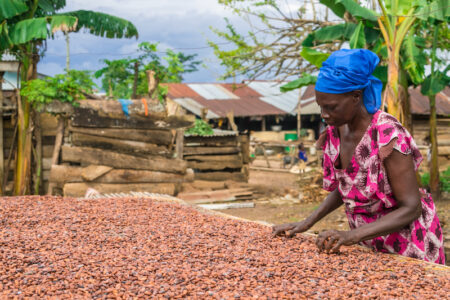Will the EUDR regulations resolve remaining issues before its deadline day?

As far as policy making impacting the confectionery and snacks sector is concerned, there can be few, if any issue that has dominated global headlines like the emergence of the EUDR deforestation legislation making its way noisily through the EU parliament this summer.
It’s now just six months to go before this landmark framework of operating for supply chains, which crucially places the burden of responsibility upon businesses to be transparent and guarantee that their ingredient sourcing is free from deforestation and ensuring human rights are upheld in origin producing nations including Ivory Coast and Ghana.
Encouragingly, there appears to have been a strong level of general support for the policy’s concept, but news emerging that the US has expressed concerns over its implementation and is calling for it to be delayed, along with a large segment of farmers in many locations in Ivory Coast, as well as Indonesia and Malaysia, the legislation’s birth is proving to be notably challenging.
Perhaps it was always destined to be a complex situation, given the very differing conditions in supply chains around the world across industries, with cocoa being a sector that has its own historic set of challenges that remain to be resolved in terms of tackling core issues of addressing child labour and environmental impact.
As we have previously reported, probably the major sticking point in the eyes of many industry observers is the fact that EUDR revolves around an advanced satellite geomapping system governing the monitoring at farm level to ensure that entire supply chains are covered in the process.
But as was revealed recently at the World Cocoa Conference, it was noted that the satellite system that is presently used to gather such data was operating at significantly below 100% accuracy. So until this factor is resolved in particular, it is hard to see how the scheme can be rolled-out effectively.
Furthermore, it remains far from clear in the minds of many as to who will actually foot the bill for such enhanced monitoring, with farmers in particular very concerned that they will be hit by further costs when they are the ones who can least afford to soak up such additional burdens. Many agricultural workers in the cocoa industry are indeed already earning far less than UN defined poverty levels.
Consequently, organisations including Fairtrade have been among the many to raise this issue with the EU, so it can only be hoped that this will be resolved so that manufacturers/industry and indeed, consumers as well, are the ones who will have to pay more for goods to ensure they are fully sustainably sourced. Six months is probably going to feel like a very long time in relation to the EUDR, but it remains to be seen whether the many other operational issues surrounding its development can be resolved in time to meet the anticipated roll-out date of the end of December.
Neill Barston, editor, Confectionery Production magazine
- keep in touch at [email protected] and via our Linkedin pages



